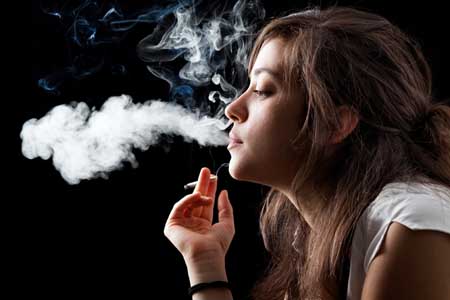Smoking Pot While Pregnant is a No-No
Mom, Don’t Think Smoking Pot When Pregnant is Harmless for your Child
In a new article in Science, Jasmine Hurd reports on a large sample of mothers who smoked pot while pregnant. Their offspring were more anxious, hyperactive, and aggressive and had higher levels of the stress hormone cortisol in their hair at ages 3-6.
When Superstorm Sandy hit, mothers who were stressed and smoked pot while pregnant had children 31 times more like to have oppositional defiant disorder and 7 times more likely to have an anxiety disorder. Stress may interact negatively with the effects of pot.
In fetuses aborted after being exposed to pot while in utero had decreased dopamine receptors in the their amygdala and n. accumbens, a reward center in brain. In animal studies, pregnant mother rodents who were exposed to THC had offspring more likely to use heroin.
DADS’ BEHAVIOR COUNTS TOO. Dad’s exposure to THC as an adult also led to offspring who preferred opiates. This was based on epigenetic changes passed on in the sperm. To the extent that this also happens in humans, one could ask how much of the current opiate epidemic is based on parental use of marijuana. Mom’s and dad’s smoking pot could make their offspring more vulnerable to opiate addiction.
Cannabis and Cannabinoids Don’t Work for Pain or Posttraumatic Stress Disorder
Aaron S. Wolfgang, MD and Charles W. Hoge, MD reviewed data on cannabis in JAMA Psychiatry and found that there were big placebo effects and no evidence for effectiveness of cannabis in military personal.
This negative data, along will all the liability of cannabis potentially causing or triggering psychosis, bipolar disorder, and schizophrenia (as well as possibly contributing to cognitive dysfunction, worsening anxiety and depression in patients with mood disorders) makes the use of pot for medical purposes an entirely foolhardy proposition, as well as a waste of money.
Legalization of pot has helped people avoid jail but precipitated a rash of use and over use.
So the bottom line from this editor is: Get Your Priorities Straight. Cannabis and Cannabinoids Don’t Work for Pain or Posttraumatic Stress Disorder and they Worsen Most Everything Else. Save your Money and Do Something Nice for Yourself and Others Instead.
Cannabis Contributes to 15% of Case of Schizophrenia
A study in Psychological Medicine (May 2, 2023) reported on ” Danish registry data spanning five decades and representing more than 6.9 million people in Denmark to estimate the population-level percentage of schizophrenia cases attributable to (cannabis use disorder) CUD. A total of 60,563 participants were diagnosed with CUD. Three quarters of cases were in men; there were 45,327 incident cases of schizophrenia during the study period. The researchers estimate that in 2021, about 15% of schizophrenia cases among males aged 16 to 49 could have been avoided by preventing CUD, compared with 4% among females in this age range. For young men aged 21 to 30, the proportion of preventable schizophrenia cases related to CUD may be as high as 30%, the authors report.”
Editors Note: Other data also support an increased risk for bipolar disorder in those abusing cannabis. The notion that cannabis use carries few risks is baloney. Making pot legal does not make it safe.
Cannabis Use Disorder Increases Risk of Subsequent Unipolar Depression and Bipolar Disorder
Jefsen et al report in JAMA Psychiatry. that in “[6,651,765] individuals in Demark, cannabis use disorder was associated with an increased risk of (subsequent) both psychotic and nonpsychotic unipolar depression and bipolar disorder….Associations between CUD and subsequent affective disorders were estimated as hazard ratios (HRs) using Cox proportional hazards regression with time-varying information on CUD, adjusting for sex; alcohol use disorder; substance use disorder; having been born in Denmark; calendar year; parental educational level (highest attained); parental cannabis, alcohol, or substance use disorders; and parental affective disorders….Cannabis use was associated with an increased risk of bipolar disorder in men (HR, 2.96; ) and women (HR, 2.54; )”, and was highest for psychotic bipolar disorder (HR, 4.05; 95% CI, 3.52-4.65).
Editors Note: Marijuana is not a benign substance. “In all, 60,?696 individuals received a diagnosis of (cannabis use disorder) during follow-up, and 260,?746 (3.9%) developed an affective disorder.”
Cannabis Withdrawal Syndrome Occurs in Almost Half of Regular Users
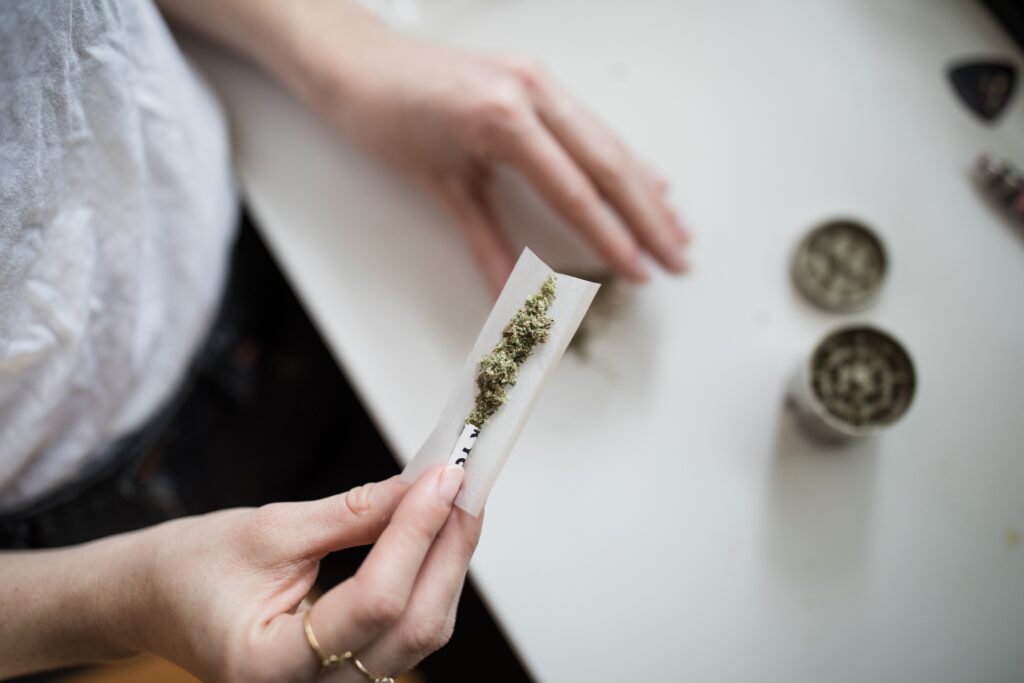
A recent systematic review and meta-analysis by researcher Anees Bahji and colleagues in the open access medical journal JAMA Network Open describes the symptoms and prevalence of cannabis withdrawal syndrome.
The most recent edition of the Diagnostic and Statistical Manual of Mental Disorders (DSM-5) indicates that cannabis withdrawal syndrome “requires the presence of at least 3 of the following symptoms developing within 7 days of reduced cannabis use: (1) irritability, anger, or aggression; (2) nervousness or anxiety; (3) sleep disturbance; (4) appetite or weight disturbance; (5) restlessness; (6) depressed mood; and (7) somatic symptoms, such as headaches, sweating, nausea, vomiting, or abdominal pain.”
According to Bahji and colleagues, cannabis withdrawal syndrome occurred in 47% of regular users. Higher rates of withdrawal were found among those in clinical settings, those who also used tobacco or other substances, and those who used cannabis daily.
Bahji and colleagues write that while many people believe that cannabis is relatively harmless, it actually has a variety of associated risks. Short-term risks include impaired short-term memory and motor coordination, altered judgment, paranoia, and psychosis. Long-term effects include addiction, altered brain development, poor educational outcomes, cognitive impairment, diminished quality of life, increased risk of chronic respiratory tract and psychotic disorders, injuries, motor vehicle collisions, and suicide.
The researchers warned that users of cannabis may resume cannabis use to allay the depression and anxiety symptoms that are part of the withdrawal syndrome, perpetuating the long-term withdrawal cycle.
Bahji and colleagues suggest that because of the high prevalence of the withdrawal syndrome, doctors should screen patients for cannabis withdrawal, particularly men and frequent cannabis users. They write, “Clinicians should be aware of CWS as it is associated with clinically significant symptoms, which can trigger resumption of cannabis use and serve as negative reinforcement for relapse during a quit attempt.” Doctors can offer support for those reducing their cannabis consumption.
Cannabis Use in Adolescence Linked to Depression and Suicidality in Young Adulthood

In a meta-analysis published in the journal JAMA Psychiatry in 2019, researcher Gabriella Gobbi and colleagues analyzed findings from 11 studies including a total of 23,317 participants and found that cannabis use in adolescence (before age 18) was associated with a significantly increased risk of depression, suicidality, and suicide attempts in young adulthood (between 18 and 32 years of age).
The researchers did not find a link between cannabis use and anxiety.
Editor’s Note: Cannabis use is not as harmless as many teens may believe.
In Animal Model, Long-Term THC Exposure Interferes with Cortical Control of the Nucleus Accumbens
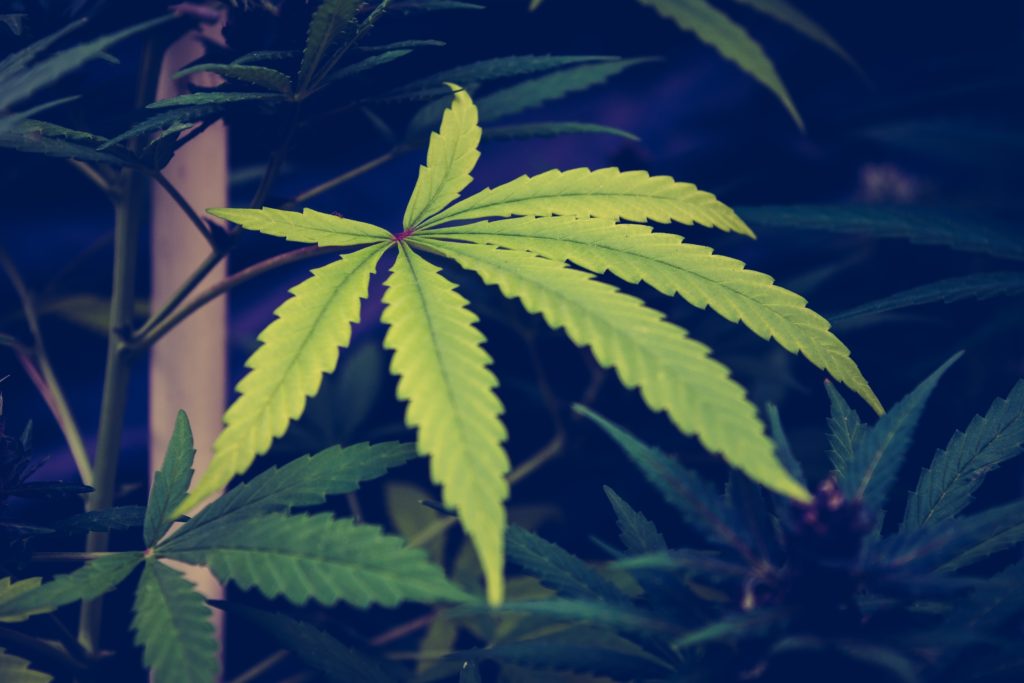
In an article in the journal Biological Psychiatry, researchers Eun-Kyung Hwang and Carl R. Lupica reported that in rats, long-term use of THC (tetrahydrocannabinol) weakens input from the cortex to the reward area of the brain, the nucleus accumbens (NAc). Long-term THC use also strengthens connections to the NAc from emotional control (limbic) regions, such as the basolateral amygdala and ventral hippocampus. Hwang and Lupica reason that this shift from cortical control of the NAc to limbic control likely contributes to the cognitive and psychiatric symptoms associated with cannabis use.
Editor’s Note: Street marijuana largely contains THC rather than CBD, the beneficial, anxiety-reducing component of cannabis. Cannabis products are being decriminalized, but it is important to remember that those with THC are linked to cannabis use disorder and increased susceptibility to psychiatric illness. Patients with bipolar disorder who use marijuana also have a more adverse course of illness than those who do not use it.
One Hit of THC Tied to Psychotic Symptoms in Adults with No History of Mental Illness
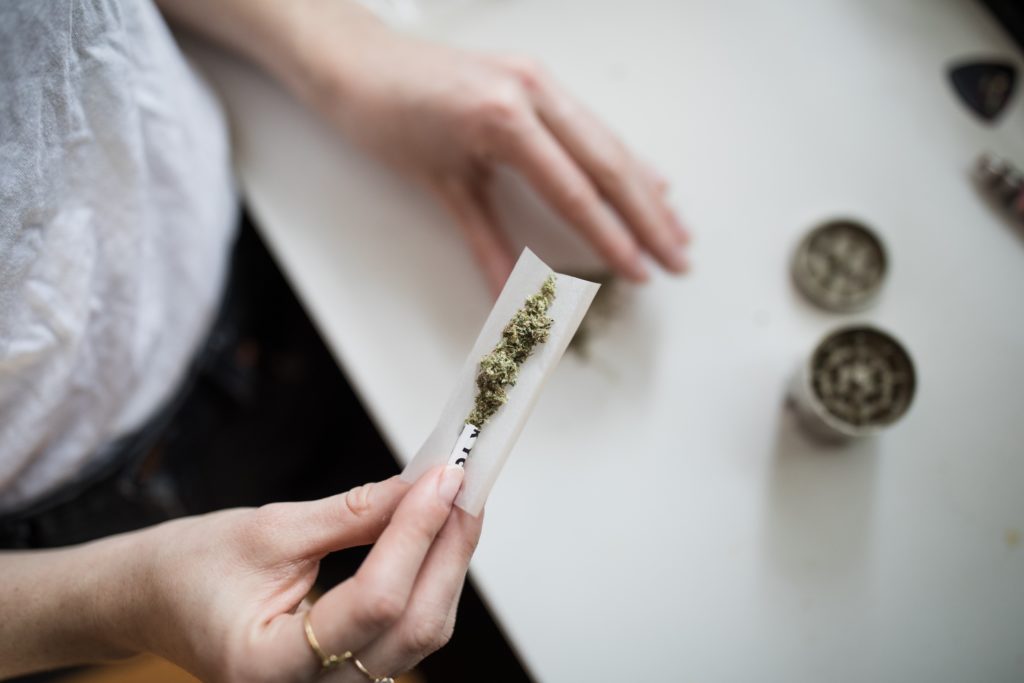
In a meta-analysis published in the journal Lancet Psychiatry, researcher Guy Hindley and colleagues reported that in otherwise healthy adults, a single dose of THC (equivalent to smoking one joint) produced transient psychotic symptoms.
The meta-analysis included 9 studies with a total of 196 participants. The researchers included studies in which participants took tetrahydrocannabinol (THC, the psychoactive component in marijuana) or placebo, and psychotic symptoms were measured.
The researchers also sought out studies in which cannabidiol or CBD was given in combination with THC, but there were not enough of these to derive significant results. CBD does not produce schizophrenia-like symptoms on its own, and some think it may have anti-psychotic effects, but findings on this topic have been mixed.
Taking THC had a large effect size on total psychotic symptoms and negative symptom severity (such as emotional flatness or avolition). It also had an effect on positive symptom severity (for example, hallucinations or delusions). The effects were larger with intravenous administration than with inhaled administration, and tobacco smokers had less severe positive symptoms.
Of four studies that included CBD, only one found that CBD reduced THC-induced psychotic symptoms.
Editor’s Note: Longer-term use of marijuana in adolescents and young adults doubles the risk of psychosis, and other data suggest that chronic use of marijuana at high doses can be associated with new onset of a diagnosis of bipolar disorder or schizophrenia. As cannabis products are being decriminalized around the US, it is worth noting some of the risks of marijuana use, particularly marijuana with a high level of THC.
Cannabis May Produce More Brain Changes in Teens with Bipolar Disorder than in Healthy Teens
At the 2019 meeting of the International Society for Bipolar Disorders, researcher Benjamin Goldstein of Sunnybrook Research Institute in Toronto reported that adolescents with bipolar disorder who smoked marijuana had greater deficits in certain brain areas than did adolescents who did not have bipolar disorder. The areas affected included the dorsal lateral and rostral middle frontal cortex, and middle cortex. Goldstein concluded, “Adolescents with [bipolar disorder] may be particularly sensitive to the neurostructural effects of cannabis.”
Marijuana in general causes adverse changes in brain structure and cognition and vulnerability to paranoia and psychosis. Heavy use in adolescence is associated with an increased incidence of the onset of bipolar disorder and schizophrenia. The Goldstein data suggest several possible causal mechanisms. Those with bipolar disorder may already have brain abnormalities that are exacerbated by marijuana use. Alternatively, marijuana and bipolar disorder together may impact brain structure more than either factor alone would.
Recent Cannabis Use Linked to Greater Symptoms of Anxiety and Mood Disorders and Less Response to Treatment
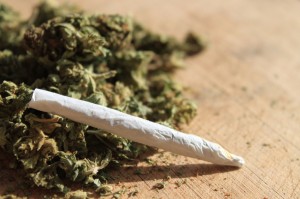 In a 2018 systematic literature review published in the Journal of Clinical Psychiatry, researcher George Mamman and colleagues reported that across 12 studies of people with anxiety and mood disorders, participants who had used cannabis in the previous six months had more symptoms than those who had used less cannabis or no cannabis during that period.
In a 2018 systematic literature review published in the Journal of Clinical Psychiatry, researcher George Mamman and colleagues reported that across 12 studies of people with anxiety and mood disorders, participants who had used cannabis in the previous six months had more symptoms than those who had used less cannabis or no cannabis during that period.
The 12 studies reviewed included a total of 11,959 participants. Four studies looked at post-traumatic stress disorder (PTSD), one at panic disorder, five at bipolar disorder, and 2 at depressive disorder. In addition to finding that recent cannabis use was associated with greater symptoms, the authors of the review also found that in 10 of the 12 studies, recent cannabis use was associated with less symptom improvement in response to treatment for bipolar disorder, depression, and PTSD; including both medication and psychotherapy.
In bipolar disorder, cannabis use was associated with greater symptom severity. Cannabis use for more than one year was linked to more recurrences of mania and shortened time to a recurrence. Compared to participants with no prior use of cannabis, those with a cannabis use disorder had more depressive symptoms, including sleep troubles and loss of interest in activities one had previously enjoyed.
In PTSD, any cannabis use at the beginning of the analysis period and sustained use of cannabis over time were both linked to greater symptom severity in the four months following the beginning of the analysis.
Mammen and colleagues cautioned that these results are limited based on the differences in measurements across the 12 studies, the inpatient populations under study, and the uncontrolled nature of the cannabis the participants accessed on their own time. However, the authors suggest that the findings may inform patients’ and doctors’ conversations about whether or not to use cannabis.

